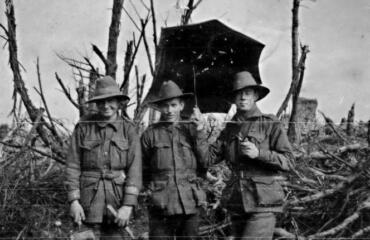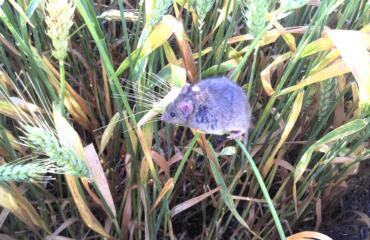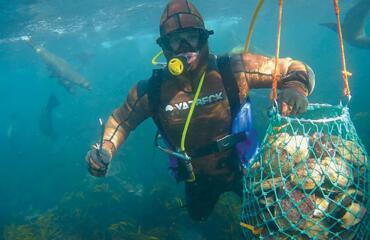At the end of a long week observing prostate biopsies, medical student Abbie Kanagarajah was getting around to some data entry when her inbox pinged with a unique job offer.
It was mid-March and the University of Melbourne student was one of about 100 medical students who were given the chance to work as clinical assistants at Melbourne’s Sunshine and Footscray hospitals between April and June, lightening doctors’ workloads as demands on the health system ramped up under the pandemic.
“I felt like I was in a position where I could help and I wanted to help,” says the 24-year-old.
During this second and more serious coronavirus wave in Victoria, which has seen cases peak at over 700 a day and total deaths spiral to 763, Kanagarajah volunteered again. This time around, she is on the front line – helping with administration, checking in patients and collecting swab tests in a coronavirus testing clinic.
![Final-year medical student Abbie Kanagarajah began work as a clinical assistant at Footscray Hospital in early April. [Supplied]](https://the-citizen-web-assets-us.s3.amazonaws.com/uploads/2020/09/15211710/Doctor_3.jpg)
Final-year medical student Abbie Kanagarajah began work as a clinical assistant at Footscray Hospital in early April. [Supplied]
“The risk [of being a doctor] is something that I actively think about now, whereas in the past it’s definitely not something that consciously crossed my mind,” she says. “In the first wave, healthcare workers were thought of as the last line of defence.
“Seeing so many of them test positive now is definitely quite scary.”
Following the success of pilot student doctor employment schemes, paid medical assistant roles were announced in May that will enable medical students to work in hospitals across the country if needed. In most states, that has not been necessary, but the surge of cases in Victoria meant students like Kanagarajah were called upon.
She feels “more trepidation” this time, but remains happy to help and is confident in the hospital’s safety measures and training program. “I wouldn’t do it if I didn’t feel safe.”
Kanagarajah is also pleased to have a job. She lost her campus library job due to coronavirus and many of her classmates have also lost work.
“A lot of people are in a lot of financial stress at the moment … so I’m definitely very lucky to have had this,” she says.
Kanagarajah was raised in Brisbane by her parents Shantha and Vijay, who are both doctors, but was not always sure she wanted to go into medicine herself. She fell in love with helping patients during a high-school job at a general practice.
She is vice-president of the university’s medical student society, plays viola in the student orchestra, and has made the dean’s honours list. Before medicine came a passion for chess – she won the national under-16 girls chess championship at just 14.
When not working she lives alone in a small city apartment, inviting The Citizen in on a virtual tour via video call. Its walls are bare except for a large yearly planner, but it’s comfortable and lived in, with pans piled in the sink from her latest experiment in cooking. During lockdown, she keeps up with friends and family online.
She does feel anxious about not having the option to spend time with her parents, who still live in Brisbane.
“I’ve always had this notion that I can always go and visit, and they can always come and visit whenever they want … I’m aware that if I do get sick I’m sort of on my own and that would be a bit challenging.”
Kanagarajah’s studies have remained largely untroubled and she is on track to finish medicine at the end of the year, though likely without the graduation ceremony she had imagined.
She has followed Australia’s response to the pandemic closely and is pleased with the strong measures taken. She is pragmatic, too, about the tougher restrictions in place in Victoria. “I’d definitely prefer to be on the side of caution.”
![Studying from home: Abbie Kanagarajah’s final year studies have moved online due to the pandemic. [Supplied]](https://the-citizen-web-assets-us.s3.amazonaws.com/uploads/2020/09/15211652/Doctor_2.jpg)
Studying from home: Abbie Kanagarajah’s final year studies have moved online due to the pandemic. [Supplied]
“The whole virus is unfair to everyone … It can seem like we’re the lowest risk group. Low risk doesn’t mean no risk though. I think people forget that. It’s not unheard of for young people to get really, really unwell.”
Covid-19 has emphasised the importance of healthcare and highlighted the need for governments, communities and researchers to work together to keep Australians healthy.
“When you’re talking about a normal patient it’s very individual healthcare – a small piece of the puzzle,” she says.
“But now, because of this, everyone’s been forced to step back and look at the whole picture and it’s really been quite eye opening.”
This project is a result of a partnership between the Guardian Civic Journalism Trust and the Centre for Advancing Journalism at the University of Melbourne. Reporting contributed by: Alyssa Herr, Anthony Marsico, Ashleigh Barraclough, Connor Webster, Else Kennedy, Fia Walsh, Jordyn Beazley, Liam Petterson, Petra Stock, Sean Goodwin, Thomas Phillips and Wing Kuang. Visit the full interactive package co-published with Guardian Australia here.




